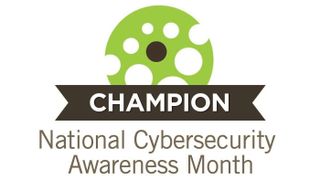What you need to get a career in cybersecurity
Land a job with a leading-edge online security company


NCSAM was launched by the National Cyber Security Alliance & the U.S. Department of Homeland Security in October 2004 to make sure that our online lives - at work and at home - are kept safe and secure. That's what National Cybersecurity Awareness Month (NCSAM) – observed in October – is all about!
Looking for an up and coming field to get into? Well then consider cybersecurity, with an estimated 301,000+ positions available across the US. This is also a lucrative field with an average salary of $116,000, nearly three times the national median income for full-time salaried workers.
Driving the growth of cybersecurity is the proliferation of cybercrime, with an expected rate of growth rate of 12% to 15% through the year 2021. Hardly a day goes by without hearing about a new security vulnerability on our computers, smartphones or IoT devices, with all sorts of data breaches and hacking attempts occurring as a result.
Therefore, governments, the private sector, and individuals alike need a way to deal with these threats, and hence the demand for cybersecurity experts.

Start with a degree
Cybersecurity is a high-tech field that requires the individual to have a strong tech-based skillset. While a high schooler may have the chops to write some nice code, companies, and more specifically their hiring managers, look to employ those with a college degree.
Therefore, to get into cybersecurity, a good move is to acquire a Bachelor’s degree. The student should study Computer Science, or a related major, focusing on coursework in cybersecurity, but also acquiring knowledge in other areas including networking and information systems for a well-rounded education.
This is also an excellent time to explore other related interests that may be complementary, such as mobile apps, or coding skills. While the eventual goal may be cybersecurity, a strong background in IT is certainly an asset to any future applicant seeking a cybersecurity position.
While you are more likely to find a more general major in computer science at your local college, there are a handful of schools that are now offering a major specifically in cybersecurity. For example, Harrisburg University of Science and Technology is now running an online Bachelor of Science in Cybersecurity Operations and Management to specifically train students to deal with cyber-threats.
Are you a pro? Subscribe to our newsletter
Sign up to the TechRadar Pro newsletter to get all the top news, opinion, features and guidance your business needs to succeed!
- Check out our list of the best VPN providers in the market

Some tips while in school
Look for a school that has an active computer science department, and also an expansive course catalog to choose from, with a larger faculty. This is typically found at a bigger university that offers advanced graduate degrees in the computer science field, rather than a smaller community college setting, although there is nothing wrong with starting at a smaller school, and then transferring as your studies advance.
Seek out a professor who has expertise in the cybersecurity field. Visit them during their office hours, and share your goal of working in the cybersecurity sector. Look for opportunities to get involved in their activities, such as the professor’s – or departmental – research that is within your area of interest, or that can be incorporated into the cybersecurity field.
The same goes if there’s a requirement for a senior project, or a summer internship – both can provide essential stepping stones to transition from academia to industry. Having a mentor can also be the first step towards networking in a chosen field, which can frequently develop to give you additional contacts.
Beyond university education
Having a degree in the field, or an allied field of cybersecurity, is obviously an excellent start. However, it can also pay to go beyond this, showing further commitment to a chosen area of expertise, and demonstrating that the individual has acquired the requisite knowledge in a particular area.
The CISSP, which stands for Certified Information Systems Security Professional, is relevant to cybersecurity. There are several other related certifications such as Cloud Security, Healthcare Security and Privacy, along with Secure Software Development, which can be pursued as well.

Networking
Landing the right job at graduation often comes down to the contacts made during college studies. Many colleges offer job placement assistance to help recent graduates find work after graduation.
Also be sure to check with the professors in your major, especially your mentor, and the departmental head. Often they may receive inquiries from companies looking to hire graduates of the department; in some cases these get posted to a bulletin board or other location in the department.
Summer internships can be particularly valuable for landing a job after graduation. These positions give both the company and the intern an opportunity for an ‘extended interview’ where it can be determined if the skills and work ethic of the intern match the culture of the organization. These opportunities are particularly valuable, and can often lead to a more permanent position, whether at the same company, or another firm.
These days, there are also opportunities for online networking as well. Look for online communities relevant to cybersecurity, create an account, and get involved. Also seek out cybersecurity job boards such as the active one from the Information Systems Security Association.
Don’t be overly specific
Cybersecurity is a diverse field with many facets, and individuals can focus on specific areas such as malware, app development or network security. Jobs in this industry can take many forms, and in fact may not even mention ‘cybersecurity’ in the job posting or title. Consider such positions as:
- Security Manager
- Security Auditor
- Director of Security
- Security Systems Engineer
- Security Analyst
- Information System Security Officer
- Cybersecurity Architect
- Cyber Compliance Assessor
- Risk Analyst
- Manager of Governance, Risk and Compliance
All of these positions offer the opportunity to use a cybersecurity skillset. There are also plenty of jobs in the government as it looks to harden and secure its systems from constant ongoing online threats, with individuals in need for compliance with the US Department of Defense (DoD) Directive 8570.1.
Jonas P. DeMuro is a freelance reviewer covering wireless networking hardware.

